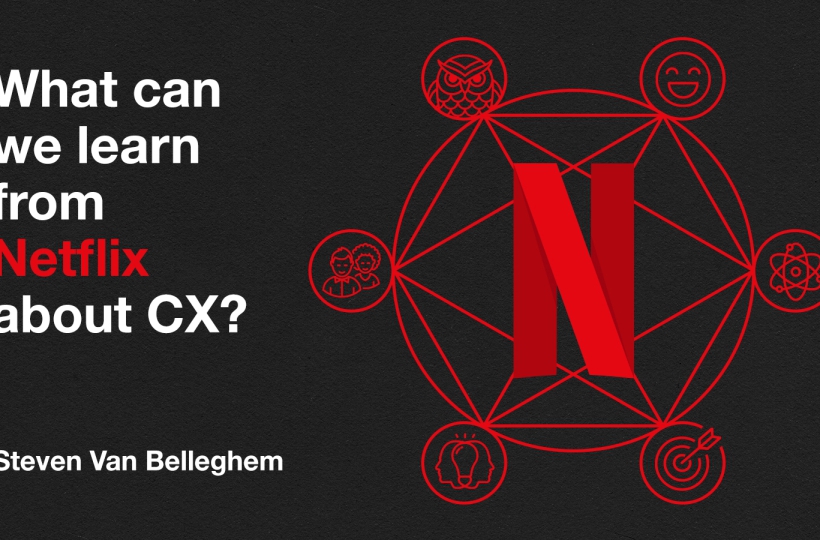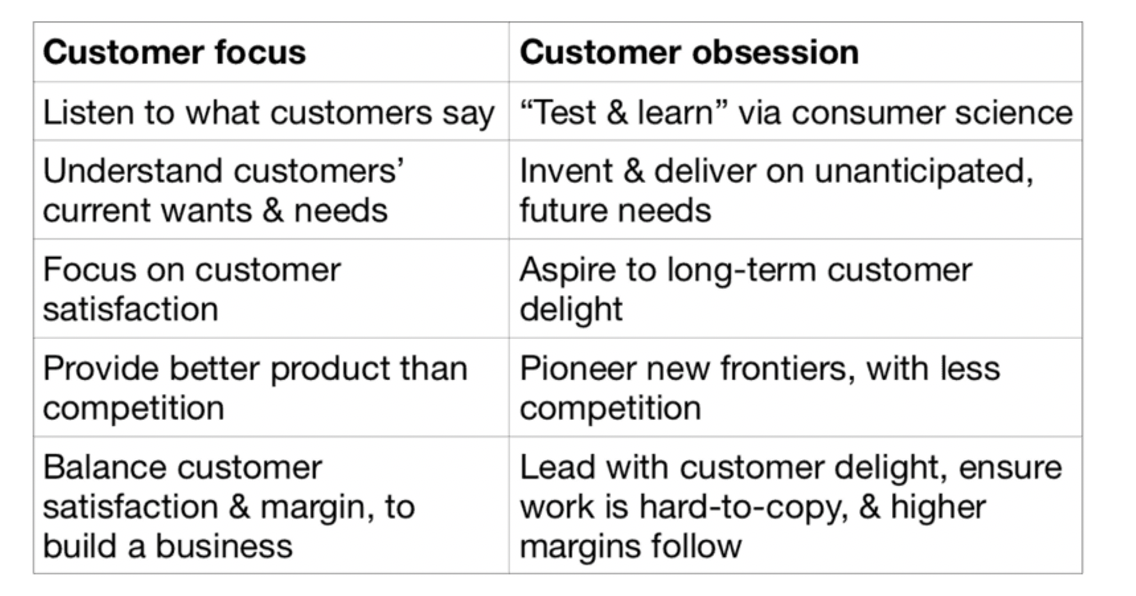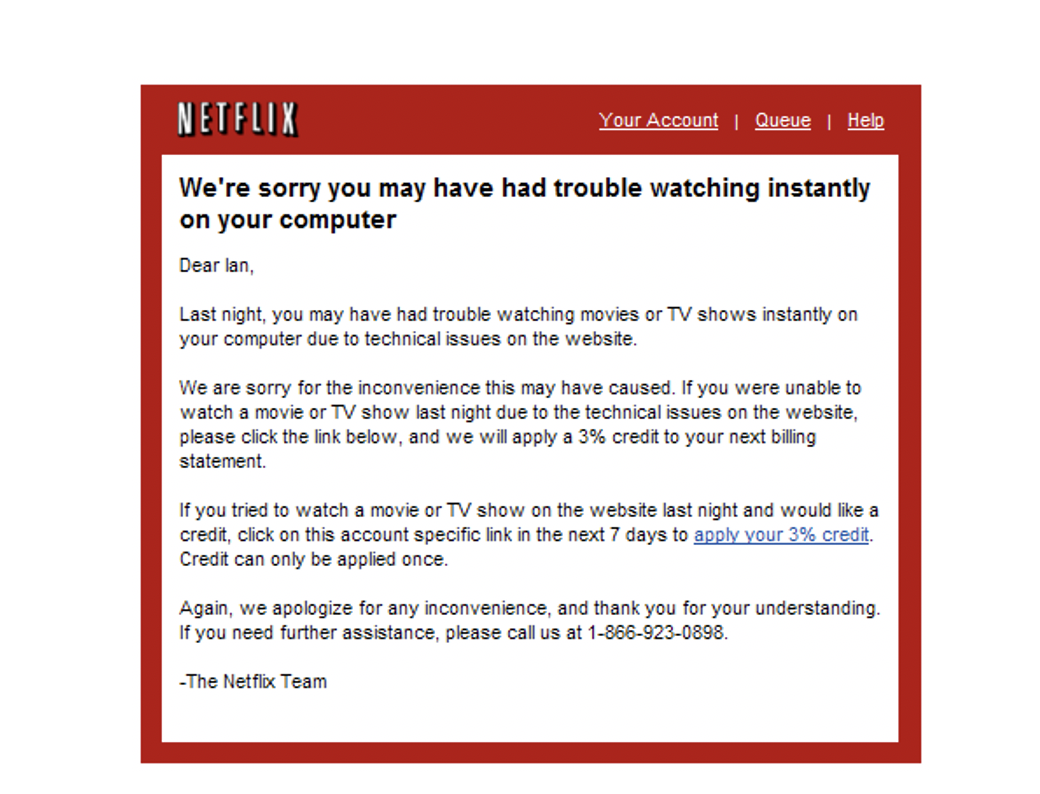Customer Experience at Netflix: 6 lessons we can all learn from!

Take your product very seriously
It’s easy to underestimate the importance of movies and series, but Netflix never made that mistake. They describe entertainment as a basic human need, which feels extra relevant in these pandemic and lockdown-filled times:
Entertainment, like friendship, is a fundamental human need; it changes how we feel and gives us common ground. We want to entertain the world. If we succeed, there is more laughter, more empathy, and more joy.
“We want to entertain the world”: how’s that for an ambitious mission?
Know what you sell
At the same time, the people at Netflix also realize on a deeper level that they sell ‘attention’ rather than entertainment. They know that they aren’t just competing with other streaming services— but rather with anything that takes consumers away from its services. That’s why its 2018 earnings report stated that “We compete with (and lose to) ‘Fortnite’ more than HBO.”
This has tremendous repercussions on the customer experience as it means that Netlfix has to constantly battle for attention in a big red ocean and has no other choice but to offer absolute top quality experiences and products.
Use science to measure, test & repeat
That is why everyone at Netflix is not just focussed on the customer, but absolutely obsessed with them. Here’s how former Netflix VP of Product, Gibson Biddle, describes the difference:
At Netflix, the customer is constantly under scrutiny: not just through analysing personal profile data to better recommend the right movies and series, but just as much through focus groups, usability sessions, one-on-ones and demographic or cancel surveys and then A/B testing the assumptions that flow out of these inputs. Netflix’ obsession goes a lot further than data, algorithms and fantastic personalization. Though the latter is obviously what sets them apart, as Reed Hastings describes it:
“If the Starbucks secret is a smile when you get your latte, [Netflix’s secret] is that the Web site adapts to the individual’s taste.”
They are in fact so serious about this that they call it “consumer science”: using a scientific methodology to form hypotheses, test them in order to build a culture of customer obsession and to discover what delights the customers. Consumer science is the driver behind their ultra-tailored experience and it’s also the reason why its inhouse content – like Black Mirror and The Queen’s Gambit – is so exceedingly popular.
Focus on Joy
But it’s not just testing, data and algorithms that makes Netflix an absolute king of customer experience. They are one of the most human brands as well, with an exceptional customer service. One top of a wide range of self-help solutions in case of problems, English live support is available 24/7 (local from 8.00 till 23.00), through live chat or via phone. And each of the customer support members is fully trained to focus on Joy instead of second guessing the customer. If you want to understand my Joy reference, watch this clip:
I love this personal example that Ian Hall writes about: “Last night I was passively watching (or more listening than anything) to Eco-Trip with my daughter while we fixed dinner. All of a sudden the sound gets all garbled. I figure the encoding is off and think nothing of it until this morning I receive the following email. Now THAT is customer service. Netflix knew I might be upset (or at least have noticed) the interruption and so, proactively, they allowed me to request a credit for a small amount of my bill. Now while 3% of my bill isn’t really going to add up, it makes me FEEL 100x better. And here I am gurgling over my feelings and the attention Netflix pays to their customers.”
This is customer service done right: if something goes wrong, don’t wait for the customer to call to fix it. Fix it before that and make him/her feel good in doing so.
Chase and delete anger, friction and frustration
Some of the best innovations come out of solving real problems. When Netflix started out as a movie rental service, Hastings was obsessed by “Making the movie experience so much better than the regular video rental that everyone wants to do it.” He went beyond positive CX, and offering ‘Joy’ and wanted to completely redefine the experience.
For those who are too young to understand how video rental worked: you had to go to the store, find the right movie out of the hundreds of possibilities which could take ages and then there were the annoying late fees. Netflix offered lower prices with monthly subscriptions and got rid of late fees and you no longer had to go to the store (as they sent you the DVD via the mail). The first approach was not very ideal of course, so Netflix took a deep dive into the consumer journey and foresaw that instant-access entertainment – streaming – could easily solve all customer frustrations in the matter. And they have been chasing anger and frustration ever since to keep enhancing the experience.
Happy employees beget happy customers
Last but not least, Netflix understands the competitive advantage of happiness, not just of its customers but of its employees as well. Though not all great customer experiences are rooted in great employee experiences (take Amazon warehouse workers, for instance), every great employee experience does rub off on the customer experience. Netflix’ CEO Reed Hastings understands this better than anyone else: he and his colleagues think just as rigorously about people and culture as they do about digital streaming and content. They make sure that they hire the right – people “who will put the company’s interests first, who understand and support the desire for a high-performance workplace” – and then they empower them to make the most creative and impactful decisions, that will always trickle down to the customers.
The Netflix culture manifesto states: “Our core philosophy is people over process. More specifically, we have great people working together as a dream team. With this approach, we are a more flexible, fun, stimulating, creative, collaborative and successful organization.” The latter has obviously just as much to do with employer branding in a raging talent war as with fostering creativity, innovation and continuously seeking better experiences for customers.

